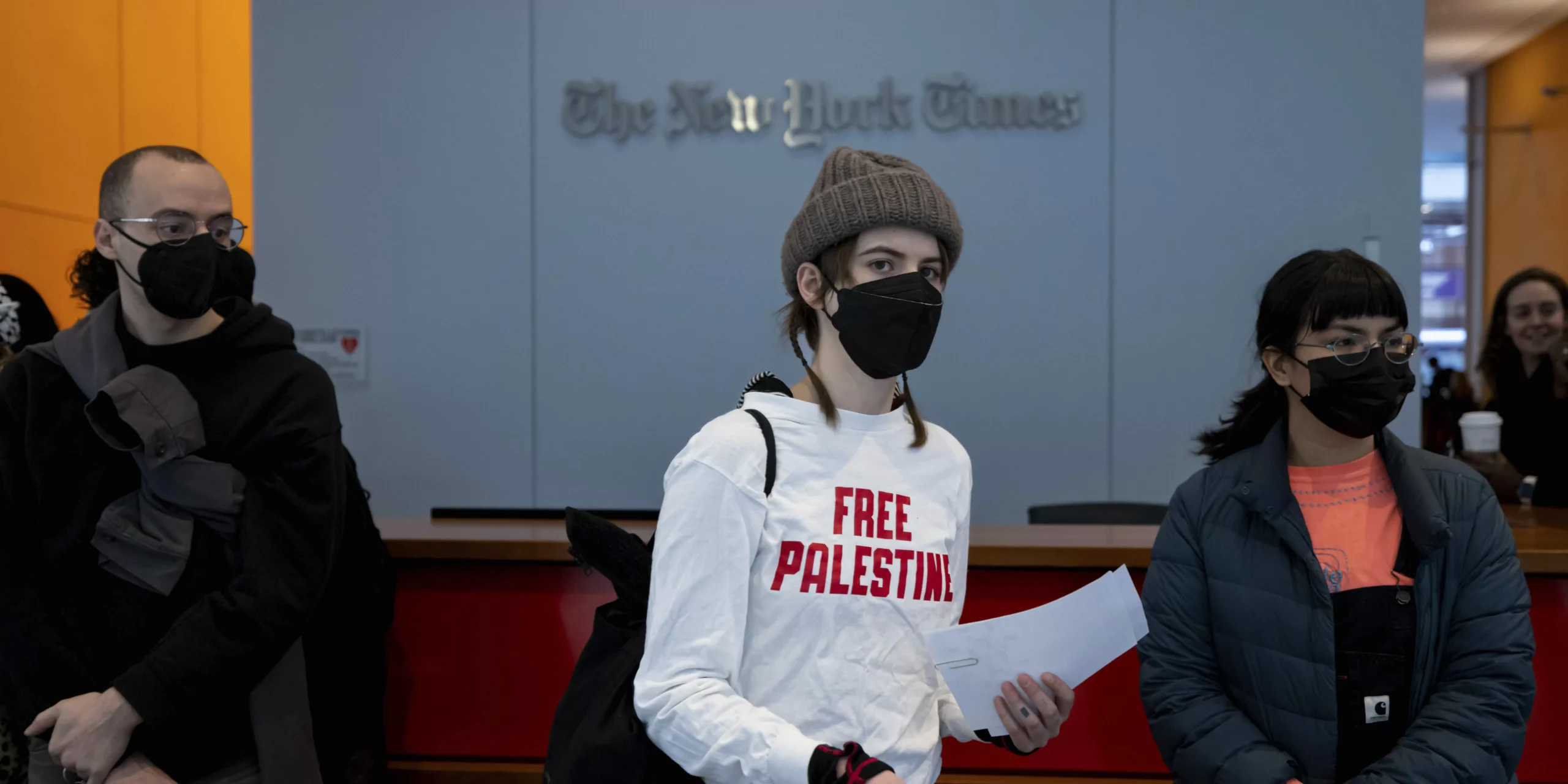Amidst the ongoing conflict between Israel and Palestine, the New York Times has found itself in the midst of an internal battle over its coverage of the war. In the wake of this controversy, top editors at the renowned newspaper have issued a set of directives to its journalists, sparking further debate and criticism.
The leaked memo, which has been making rounds on social media, instructs journalists to avoid using certain words and phrases in their reporting on the conflict. These include terms such as “genocide,” “ethnic cleansing,” and “occupied territory.” The memo has caused an uproar among readers and journalists alike, with many questioning the newspaper’s commitment to unbiased and accurate reporting.
The New York Times has long been regarded as one of the most reputable and influential newspapers in the world. Its coverage of global events has shaped public opinion and influenced political decisions. However, the recent controversy has raised concerns about the newspaper’s objectivity and journalistic integrity.
The memo, which was reportedly issued by top editors at the New York Times, has been met with widespread criticism. Many have accused the newspaper of censoring its journalists and bowing down to pressure from pro-Israel groups. The use of terms such as “genocide” and “ethnic cleansing” has been a contentious issue in the coverage of the Israel-Palestine conflict, with some arguing that these words are not accurate descriptions of the situation on the ground.
In response to the leaked memo, the New York Times has defended its decision, stating that the use of these terms can be inflammatory and misleading. The newspaper has also emphasized the importance of maintaining objectivity and avoiding biased language in its reporting. However, critics argue that by avoiding these words, the newspaper is downplaying the severity of the situation and failing to accurately portray the reality of the conflict.
The use of language in journalism is a crucial aspect of reporting. Words have the power to shape perceptions and influence public opinion. As such, it is essential for journalists to use language carefully and accurately, especially when reporting on sensitive and complex issues such as the Israel-Palestine conflict. However, the New York Times’s decision to restrict the use of certain words has raised questions about the newspaper’s commitment to truthful and unbiased reporting.
The use of the term “genocide” in relation to the Israel-Palestine conflict has been a topic of debate for many years. Some argue that the actions of the Israeli government towards Palestinians can be classified as genocide, while others believe that the term is not appropriate in this context. However, by prohibiting its use, the New York Times is effectively silencing the voices of those who believe that the term accurately describes the situation in Gaza.
Similarly, the term “ethnic cleansing” has been a contentious issue in the coverage of the conflict. While some argue that the forced displacement of Palestinians from their homes can be classified as ethnic cleansing, others believe that the term is too extreme and does not accurately reflect the situation. By avoiding the use of this term, the New York Times is once again limiting the scope of its reporting and potentially downplaying the severity of the situation.
The directive to avoid using the term “occupied territory” has also sparked criticism. The term is widely used by international organizations and governments to describe the Israeli occupation of Palestinian land. By prohibiting its use, the New York Times is effectively disregarding the internationally recognized status of these territories and failing to accurately report on the situation.
The leaked memo has caused a stir within the journalism community, with many questioning the newspaper’s commitment to truthful and unbiased reporting. The New York Times has a responsibility to its readers to provide accurate and comprehensive coverage of global events. By restricting the use of certain words, the newspaper is failing to fulfill this responsibility and potentially compromising its journalistic integrity.
In conclusion, the leaked memo from the New York Times has sparked a heated debate about the use of language in journalism and the newspaper’s commitment to unbiased reporting. While the newspaper has defended its decision, the directive to avoid words such as “genocide,” “ethnic cleansing,” and “occupied territory” has raised concerns about the newspaper’s objectivity and journalistic integrity. As a leading newspaper, the New York Times has a responsibility to provide accurate and comprehensive coverage of global events, and this should not be compromised by censorship or pressure from external sources.






